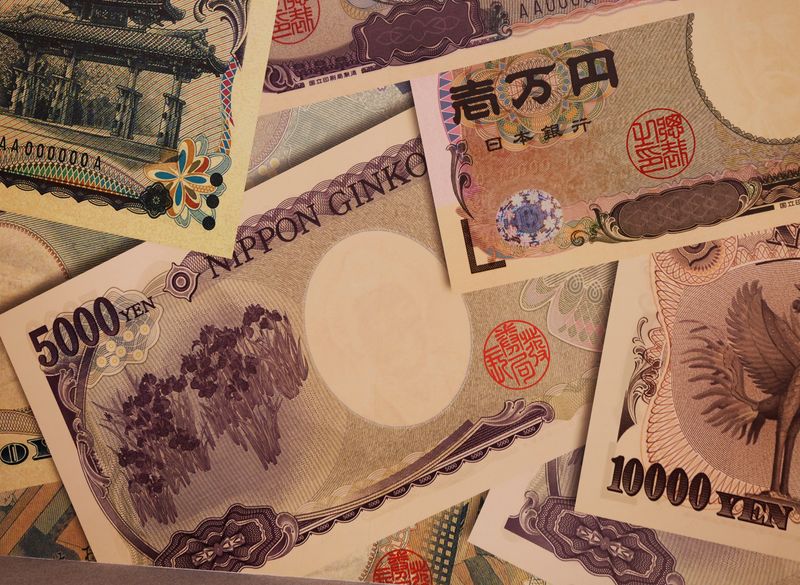Satoshi Sugiyama and Yoshifumi Takemoto
TOKYO (Reuters) – Japanese Finance Minister Shunichi Suzuki said on Thursday authorities were not ruling out any steps to combat excessive exchange rate fluctuations after the dollar rose to a 34-year high against the yen.
“We don’t just look at the (dollar/yen) levels themselves, such as 152 yen or 153 yen (per dollar), but also analyze their background,” Suzuki told reporters. “We are searching urgently,” he added.
Suzuki also said that excessive movements in currencies are not desirable and that it is important that currencies move steadily to reflect fundamentals.
Speaking in parliament, Suzuki later said that while a weak yen had both advantages and disadvantages, he was always concerned about its impact on prices.
His comments came after the yen fell above 153 to the dollar, its lowest level since 1990, following the release of strong US inflation data on Wednesday. On Thursday, the dollar was at 152.90 yen in Asia.
Market participants were on guard for any signs of yen intervention by the Japanese authorities.
Japan last intervened in the foreign exchange market in 2022, first in September and then in October to support the yen.
Earlier in the day, Japan’s chief currency diplomat Masato Kanda said the yen’s recent move had been rapid and that he would not rule out any moves.
But Suzuki and Kanda declined to say whether the yen’s overnight fall was excessive and did not strengthen their warning to take “strong action” against the yen’s sharp fall.
“I don’t mean any specific level (dollar/yen), but excessive volatility has a negative impact on the economy,” Kanda, who is vice finance minister for international affairs, told reporters.
“The latest steps are rapid. We would like to respond adequately to excessive steps, without excluding any options,” he said.
“We are always ready to respond to any situation,” Kanda said when asked whether authorities were preparing to intervene in the foreign exchange market to support the yen.

“Compared with 2022, when Japan intervened to stop the weak yen from exceeding 145 per dollar, Japanese authorities seem to lack the resolve to defend the yen this time,” said Masafumi Yamamoto, chief currency strategist at Mizuho Securities.
“Given that the strength of the dollar reflects the robust U.S. economy, and the interest rate differential between Japan and the United States is quite large, the Japanese authorities may feel it would be futile even if they intervened now.”


